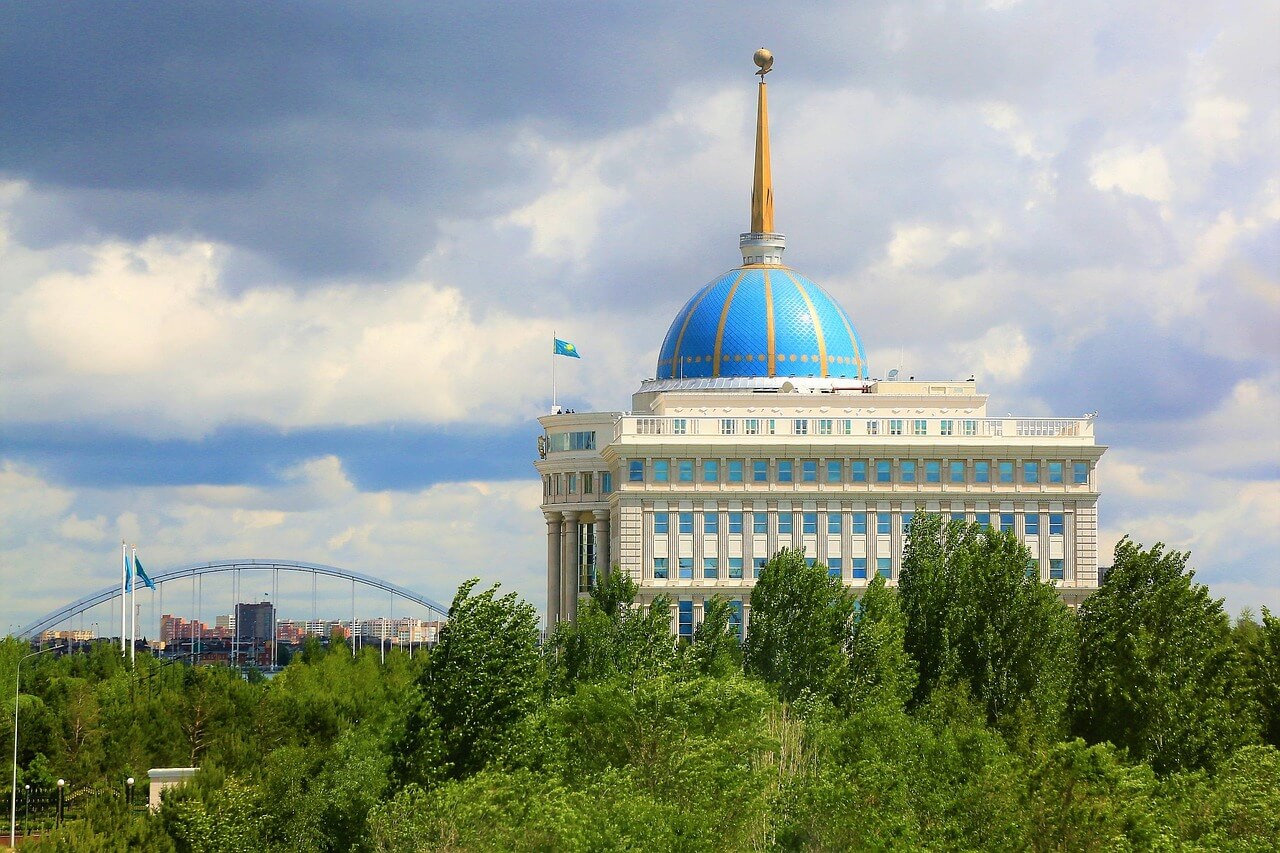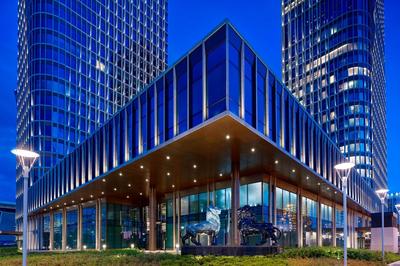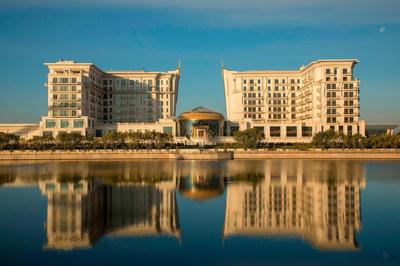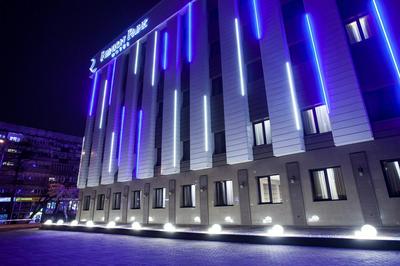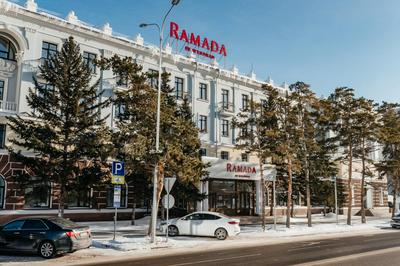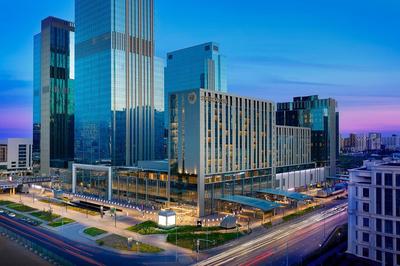When to visit Kazakhstan during the year?
Kazakhstan experiences a continental climate with hot summers and cold winters. The peak tourist season is from June to August when visitors flock to see the stunning landscapes, such as the Charyn Canyon and the Altai Mountains. Spring (March to May) is a lovely time for nature lovers to explore blooming parks in cities like Almaty, while autumn (September to November) offers a colorful foliage experience. Winter (December to February) attracts adventure seekers to ski resorts in the Tien Shan mountains, especially around Almaty. Statistical data shows that Almaty and Astana welcome the highest number of tourists during summer, driven by numerous festivals and outdoor activities.
How to get to Kazakhstan?
Getting to Kazakhstan can be an exciting part of your journey, thanks to its connectivity from major international hubs. The country is served by several transport modes, including planes, buses, trains, and cars. The main entry points are Almaty and Astana, connecting travelers from around the globe. Distances can be vast, and flight durations vary, so it’s crucial to plan your travel accordingly.
- Main airports include Almaty International Airport (ALA), Nursultan Nazarbayev International Airport (TSE) in Astana, and Aktobe International Airport (AKX). Major international routes come from Asia (Hong Kong), Europe (Frankfurt), North America (New York), Australia (Sydney), and Africa (Nairobi).
- Low-cost airlines such as Air Astana and FlyArystan offer budget options, enhancing accessibility.
- Direct flights from Europe to Kazakhstan can take around 5-7 hours, while connections from North America may exceed 15 hours, including layovers.
- Main bus stations are located in Almaty and Astana, connecting with cities like Semey, Pavlodar, and Karaganda.
- Buses from neighboring countries, such as Uzbekistan and Kyrgyzstan, run frequently, making it convenient for regional travel.
- Kazakhstan boasts an extensive railway network, with international services connecting to Russia and China.
- Travel times for long-distance trains can range from 12 hours (Astana to Almaty) to 48 hours (Moscow to Almaty).
- The major highways include the M36 highway, which connects Almaty with Astana.
- Distances from major cities: Almaty to Astana is around 1,200 km (750 miles).
- Road conditions vary, with tolls on major routes; ensure to check for any updates before departing.
Tourist activities in Kazakhstan
Kazakhstan offers a wide array of tourist activities that cater to all kinds of travelers. For adventure enthusiasts, the majestic Altai Mountains provide opportunities for hiking, skiing, and wildlife spotting, especially in places like the Katon-Karagay National Park. The historic city of Turkestan, with its intricate mosques and tombs, is perfect for those interested in the nation’s rich history. In Almaty, visit the vibrant Green Bazaar and the nearby Medeu skating rink, which attracts local and foreign tourists alike. Nature lovers can explore the serene beauty of the Mausoleum of Khoja Ahmed Yasawi or witness the unique ecosystem of the Caspian Sea. In the capital, Nur-Sultan, you'll find modern architecture marvels like the Bayterek Tower and the Khan Shatyr, a massive tent-like structure that houses various entertainment options. Cultural experiences include trying out traditional horsemanship at a yurt camp and attending the Astana Opera performances, providing an all-encompassing taste of Kazakh culture.
Accommodation in Kazakhstan
Kazakhstan offers a variety of accommodation options ranging from luxurious hotels to affordable hostels and cozy guesthouses. In major cities like Almaty and Nur-Sultan, you can find high-end hotels such as The Ritz-Carlton and InterContinental, with prices averaging around $150 to $300 per night, depending on the season. Mid-range options like Three-star hotels and serviced apartments offer comfort and convenience, priced around $50 to $100. For budget travelers, expect to find hostels and guesthouses for as low as $10 to $30 a night. The peak tourist seasons (summer and winter) may see prices surge by 20-30%, so booking in advance is advisable. Unique stays, including yurt accommodations in rural areas, provide a picturesque and authentic experience of Kazakh nomadic culture.
Food in Kazakhstan
Kazakh cuisine is a rich tapestry of flavors influenced by nomadic traditions. Meat, particularly lamb and horse, plays a significant role, with dishes like 'beshbarmak' (boiled meat with pasta) and 'kazy' (horse meat sausage) taking center stage. Diversity in food preparation, including grilling and stewing, reflects the country’s heritage. Traditional drinks such as 'kumys' (fermented mare's milk) and 'shubat' (fermented camel milk) are popular and commonly served with meals. Local eateries, called 'chaykhana', offer affordable meals starting from $5, while upscale restaurants in cities may charge up to $30 for a high-end dining experience. Don't miss tasting local pastries and desserts like 'baursaki' (fried dough balls) for a sweet ending!
Important numbers and information
- Police: 102
- Ambulance: 103
- Fire Brigade: 101
- Embassy of the USA: 7 7172 70 22 00, Kazakhstan, Nur-Sultan, Kenesary St, 51
- Almaty International Airport: 050000, Kazakhstan, Almaty, Airport Rd, 1
- Currency: Kazakhstani Tenge (KZT); credit cards widely accepted in urban areas
- Visa Requirements: Visa-free for up to 30 days for many nationalities; check with local embassies.
What to see in Kazakhstan?
Kazakhstan is home to remarkable landmarks and natural wonders that captivate tourists. The city of Astana, the capital, features futuristic architecture, with the Bayterek monument symbolizing the country’s ambitions. Almaty, the former capital, boasts lush parks and the stunning Shymbulak Ski Resort. Dive into history at the Mausoleum of Khoja Ahmed Yasawi, a UNESCO World Heritage site, in Turkestan. Explore the surreal Charyn Canyon, often dubbed the 'Grand Canyon of Kazakhstan,' for breathtaking views and hiking opportunities. Additionally, don’t miss the serene beauty of the Caspian Sea or the expansive steppe landscapes, which are particularly enchanting during sunrise. Each location unveils a different facet of Kazakhstan's rich cultural heritage and natural artistry, making it a treasure trove for explorers.
History, geography and climate
Kazakhstan's history is a tapestry woven with ancient nomadic tribes, Russian imperialism, and independence in 1991. Geographically, it is the world's largest landlocked country, featuring vast steppes, the towering Tien Shan mountains, and the Caspian Sea coast. The terrain includes rich plains, deserts, and mountain ranges, offering diverse ecosystems. Kazakhstan's climate is predominantly continental, experiencing extreme temperature variations, with averages ranging from -25°C in winter to 35°C in summer. Rainfall is sparse, mainly occurring in the spring and fall months. These climatic conditions shape both the lifestyle and culture of its people, making the land and its heritage inseparable.
Population and culture
With a population of around 18 million, Kazakhstan is a melting pot of cultures, featuring ethnic Kazakhs, Russians, Uzbeks, and Ukrainians, among others. Russian and Kazakh are the main languages spoken, while Islam is the predominant religion, influencing many seasonal festivities, including Nauryz, which celebrates the spring equinox. Traditional customs continue to thrive alongside modern influences, as seen in the practice of horsemanship, yurt living, and music festivals that showcase Kazakh folklore. The rich tapestry of cultural traditions is a vital part of Kazakhstan's national identity, offering a unique experience for visitors and a warm welcome to all.
